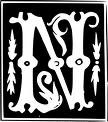"For it is true that we often discover meanings and reasons for things many years after they mattered quite so much to us."
(This one's for the Doctor Who ringtone.)
Some time ago I mentioned that I wanted to talk about information from the future. I've held off on that because the ideas in my head haven't solidified into a coherent picture yet. But what the hell... This post has marinated long enough. Let's cook it up and serve it to the unsuspecting masses. :)
I've tried (in this blog) to create a picture of time that has our conscious experience arising from a struggle between information/influence from the (subjective) past and information/influence from the (subjective) future. I don't know quite how to conceptualize this information/influence... Some have call it a 'wave' (in the quantum sense), and that seems as good a picture as any, for the moment.
In working to create this picture of time and its relationship to experience, I occasionally indulge in bizarre thought experiments like the one that prompted my earlier mention of information from the future...
Thought Experiment: Assume that there is an influence traveling 'back in time' from the subjective future. (This is not an unreasonable assumption; the idea has been out there for a while.) Further assume that consciousness as we experience it is somehow critically tied to that biochemical mass we call the brain. (Not an unreasonable assumption, but certainly not a given either.) Assume that the brain would retain its capacity to produce exactly the same experience of consciousness after a period of cryonic suspension. (I doubt that this is possible, as I believe that a critical portion of our conscious experience arises from a non-local 'entanglement' (if you will) with other minds.)
With all these assumptions in place, it stands to reason that a person who has successfully extended his lifespan via cryonic suspension would also have extended the potential for information from his subjective future to influence him now. What would this person have access to, and how would it affect his behavior in the present? If one can reasonably assume that he would use (though perhaps not consciously) information from the future to enhance his own survival, what would you expect to see him doing now? (Hmmm...)
Thinking about the influence of the future brings up other interesting questions as well...
Is time an illusion? How do we experience this influence/information from the future? Is our perception of 'free will' nothing more than an incomplete awareness of the continually shifting balance between the information/influence of the past and that of the future?
What property of the substrate of consciousness creates/enables our awareness of the passage of time? (You want to say 'Memory, duh!', but why should there not also be a corresponding neural/neurochemical structure to harness and/or 'display' information from the future?) Without this property/structure, how would we know about time? What would we know about time? Is our particular kind of temporal perception really nothing more than a reverberation property within the mechanism/substrate of consciousness?
And that's not even the best part...
Now come questions like: How can we deliberately capitalize on our ability to access information from the future? Is our lifespan of moments of conscious experience simply one giant bi-directional temporal computation, such that events in our past can be perceived as having been 'caused' by events (or needs) in our future? Is it possible to willfully use the 'future' in the present to achieve a specific outcome now? In my head, I refer to this as 'borrowing against future entropy', though physicists might have a beef with the way I'm using the word 'entropy'.
I've mentioned things like this before, and I'm slowing solidifying an ontology for... (pick one)
- trans-temporal
- extra-temporal
- bi-directional temporal
... ways of describing and discussing conscious experience and the computations that give rise to it. Who knows what kind of questions such a perspective might answer...
(Crazy thought experiments welcome!)
(P.S. Sorry, 50 - I had to do that.)
